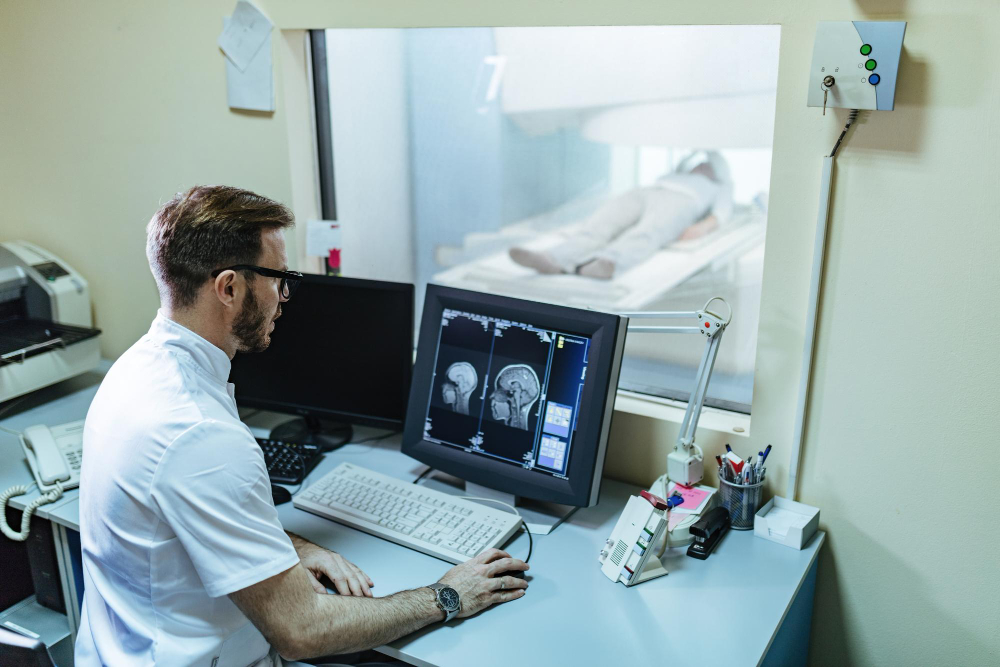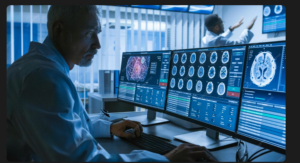In the field of neurology, neurosurgery, and spine care, precision is everything. When someone is diagnosing and treating complex brain and spine disorders, having a clear, detailed understanding of neurological imaging is imperative for accurate and informed clinical decisions. This is where clinical neuroradiology consulting can immensely help.
Table of Contents
ToggleIt provides in-depth analysis of advanced imaging techniques, such as MRI, CT, and angiography to assist neurologists, neurosurgeons, and other healthcare providers in enhancing patient outcomes. With unbiased and accurate results, their expertise goes way beyond interpreting scans- they also help identify even the minutest and inconspicuous abnormalities, track disease progression, and guide minimally invasive procedures.
The Role of Neuroradiology Consulting in Treatment Planning
We live in an era where new-age imaging technology continues to evolve, and there are several ways in which clinical neuroradiology consulting can ensure accurate and effective treatment decisions for patients:
1. Improving Diagnostic Accuracy
Accurate diagnosis is the foundation of every effective treatment. Neuroradiologists specialize in detecting and characterizing conditions, such as:
- Brain Tumors- for assessing size, location, and malignancy
- Stroke and Vascular Disorders- for identifying ischemic v/s hemorrhagic stroke.
- Spinal Cord Injuries and Degenerative Diseases for identifying disc herniation and spinal stenosis.
- Multiple Sclerosis and other demyelinating diseases
Insights from clinical neuroradiology consultants can help refine diagnoses, differentiate between conditions with overlapping symptoms, and ensure that clinicians receive the most detailed and actionable imaging reports.
2. Optimizing Surgical and Non-Surgical Treatment Plans
Neuroradiology consulting can also directly influence whether a patient requires surgery, targeted therapy, or conservative management. For instance:
- In neurosurgical planning, neuroradiologists provide preoperative imaging analysis to help map surgical approaches, assess risks, and improve precision.
- In spinal procedures, they guide interventions such as epidural steroid injections or minimally invasive spinal decompression using fluoroscopic imaging.
- In stroke management, rapid imaging interpretation can determine whether a patient is eligible for thrombectomy or clot-dissolving therapies like tPA.
3. Guiding Minimally Invasive AND Image-Guided Procedures
Modern neurology and neurosurgery rely on image-guided interventions to improve precision and reduce patient recovery times. Neuroradiologists support procedures such as:
- Endovascular treatments (for aneurysms, AVMs, and carotid stenosis)
- Stereotactic biopsies (for brain tumors and lesions)
- Spinal cord stimulator placements
By using real-time imaging and 3D reconstruction, these specialists can ensure safer and more effective interventions without any errors.
The Future of Neuroradiology in Advanced Neurological Care
With advancements in neuroradiology, and techniques like AI-driven imaging analysis, 3D imaging, reconstruction, and machine learning algorithms, neuroradiology is all set to become more precise and efficient. With AI-assisted neuroradiology, clinicians can help with early stroke detection, automated tumor segmentation, and predict surgical outcomes without any errors.
Conclusion
By collaborating with neuroradiologists, healthcare teams can ensure they are making data-driven, well-informed decisions that enhance patient care and optimize treatment strategies. In addition to improving patient outcomes, clinical neuroradiology consulting can also be immensely beneficial in supporting research progression. Researchers can also use them to improve the accuracy of their research procedures and detect any anomalies or problems in case of medical malpractice.








